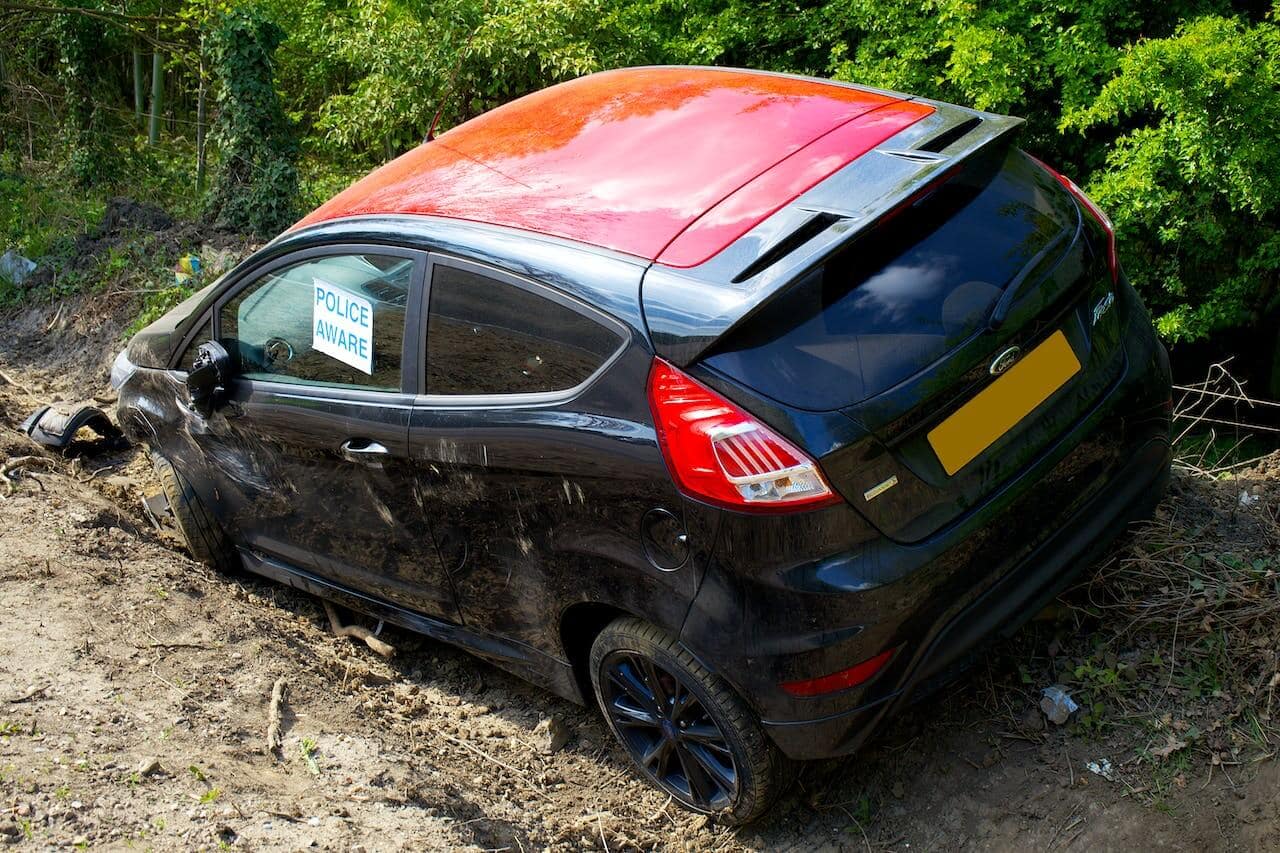Rollover accidents are some of the most terrifying and devastating incidents that can happen on the road. When a vehicle flips over onto its roof or side, the potential for severe personal injuries and even fatalities increases dramatically. In this article, we’ll delve into the world of rollover accidents and the types of personal injuries they can cause. We’ll also explore what constitutes a rollover crash and offer insights into how to prevent them.
What are the Injuries of a Rollover?
Rollover accidents can lead to a wide range of injuries, some of which can be life-altering. Let’s take a closer look at the common injuries associated with rollover accidents:
Head and Brain Injuries
One of the most common injuries in rollover accidents is head and brain injuries. These can occur due to the impact of the crash, especially when the vehicle’s roof collapses or when the occupants are forcefully ejected from the vehicle. Traumatic brain injuries (TBIs) can result in cognitive impairment, memory loss, and even long-term disabilities.
Speak to An Expert About Your Claim
Spinal Cord Injuries
Rollover accidents often lead to spinal cord injuries, which can result in paralysis, loss of motor function, and a lifetime of medical care. The abrupt and forceful movements during a rollover can cause damage to the spinal cord, impacting the victim’s quality of life significantly.
Neck and Back Injuries
Whiplash, herniated discs, and fractures in the neck and back are also common injuries in rollover accidents. The violent jolting and twisting of the body during a rollover can strain or damage the delicate structures of the neck and spine.
Broken Bones
Rollover accidents frequently lead to broken bones, such as fractures in the arms, legs, ribs, and pelvis. The force of the impact can be severe enough to cause bones to shatter, and these injuries often require surgical intervention and extended rehabilitation.
Cuts and Lacerations
Broken glass, sharp metal, and other debris can cause cuts and lacerations in a rollover accident. These injuries, while generally less severe than head or spinal injuries, can still be painful and require medical attention.
Internal Injuries
The force exerted on the body during a rollover can result in internal injuries. Organs may be bruised, torn, or punctured, leading to internal bleeding and other life-threatening conditions.
Psychological Trauma
In addition to physical injuries, rollover accidents can also cause psychological trauma. Survivors may experience post-traumatic stress disorder (PTSD), anxiety, depression, and other mental health challenges as a result of the terrifying ordeal.
Arrange a Call back For Your Claim
What is Considered a Rollover Crash?
Now that we’ve explored the types of injuries associated with rollover accidents, let’s take a closer look at what defines a rollover crash.
A rollover crash occurs when a vehicle tips over onto its side or roof, often as a result of a sudden and violent change in direction or a collision with another vehicle or object. There are several factors that can contribute to rollover accidents:
High Centre of Gravity
Vehicles with a high centre of gravity are more susceptible to rollover accidents. The design of these vehicles makes them less stable, especially during sharp turns or when swerving to avoid obstacles.
Excessive Speed
Speeding significantly increases the likelihood of a rollover accident. When a vehicle is traveling at a high rate of speed, it becomes more difficult to maintain control, especially when unexpected obstacles or hazards arise.
Tripping and Overturning
A common scenario that leads to rollover accidents is when a vehicle “trips” over an object or obstacle. This could be a curb, guardrail, or even a soft shoulder on the side of the road. Once the vehicle’s wheels lose contact with the road surface, it can start to roll.
Sudden Manoeuvres
Abrupt and erratic steering manoeuvres, such as swerving to avoid a collision or overcorrecting after veering off the road, can trigger rollover accidents. These sudden movements can upset the vehicle’s balance and cause it to roll.
Multiple Collisions
In some cases, rollover accidents can occur as a result of multiple collisions. For instance, a vehicle may be hit by another vehicle, causing it to spin and then roll over after hitting another object.
Preventing Rollover Accidents
Preventing rollover accidents is crucial for the safety of all road users. Here are some tips to reduce the risk of rollover accidents:
Choose the Right Vehicle
If you have the option, consider driving a vehicle with a lower centre of gravity. These vehicles tend to be more stable and less prone to rollovers. However, it’s important to note that driver behaviour and road conditions also play a significant role in accident prevention.
Drive at a Safe Speed
Adhering to speed limits and adjusting your speed according to road and weather conditions is essential. Slower speeds make it easier to maintain control of your vehicle, especially when unexpected obstacles or hazards arise.
Avoid Sudden Manoeuvres
Try to avoid sudden and aggressive steering manoeuvres. Smooth and controlled driving is not only safer but also reduces the risk of losing control and rollovers.
Maintain Your Vehicle
Regular vehicle maintenance is crucial in preventing accidents. Ensure that your tires, brakes, and steering components are in good condition. Worn or improperly maintained parts can lead to loss of control and accidents.
Buckle Up
Wearing seat belts is one of the simplest yet most effective ways to protect yourself in the event of a rollover accident. Seat belts keep occupants inside the vehicle, reducing the risk of ejection and serious injury.
Avoid Distractions
Distracted driving is a leading cause of accidents. Stay focused on the road and avoid activities such as texting, talking on the phone, or engaging in other distractions while driving.
Drive Defensively
Be aware of your surroundings and anticipate the actions of other drivers. Defensive driving can help you react in a way that avoids potential accidents.
Understand Road Conditions
Different road surfaces and conditions require different driving techniques. Be cautious when driving on wet, icy, or gravel roads, as these can increase the risk of rollover accidents.
Making a Personal Injury Claim with National Claims
If you or a loved one has been involved in a rollover accident and suffered personal injuries, it’s essential to know your rights and options for seeking compensation. At National Claims, we are here to guide you through the process of making a claim.
Our experienced team understands the complexities of personal injury cases stemming from rollover accidents, and we are committed to helping you get the compensation you deserve. Here’s how we can assist you:
Initial Consultation
We offer a free initial consultation to assess the details of your case. Our experts will listen to your story and provide guidance on the best course of action.
Gathering Evidence
Our team will work diligently to gather all the necessary evidence to support your claim. This may include accident reports, medical records, witness statements, and any other relevant information.
Assessing Damages
We will evaluate the extent of your injuries and the impact they have had on your life. This assessment is crucial for determining the compensation you may be entitled to.

Conclusion
Rollover accidents can result in devastating personal injuries, affecting victims physically, emotionally, and financially. Understanding the types of injuries associated with rollovers and the factors that contribute to these accidents is essential for staying safe on the road. By following safe driving practices and taking preventative measures, we can reduce the risk of rollover accidents and protect ourselves and our loved ones from harm. Road safety is a collective responsibility, and by taking it seriously, we can make our roads safer for everyone.
Remember, the key to avoiding rollover accidents is to drive with caution, respect traffic laws, and be aware of your surroundings. Stay safe out there and ensure that you and your passengers always buckle up, as a seatbelt can be a lifesaver in the event of a rollover crash. If you’ve been the victim of a rollover accident, National Claims is here to help you navigate the process of making a personal injury claim and seeking the compensation you deserve.
Contact us to get a start on your claim and speak to one of our claims specialists today.
Click below to see why we are one of the most trusted claims management companies in the UK.





